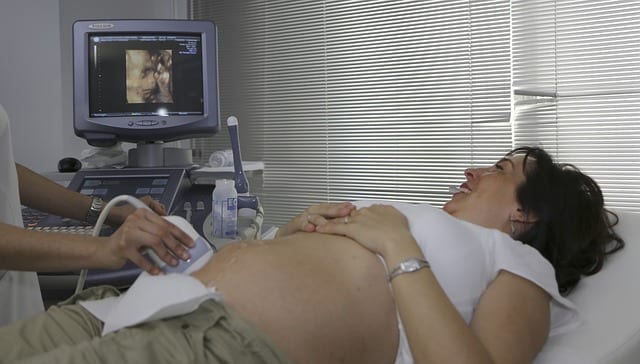If you’re a UK mom (and I have a lot of you following!) considering your career options or planning to reenter the workforce, one of the most rewarding fields to consider is sonography. Think about how excited you were to see ultrasound images of your little one(s) before they entered the world. Now times that by ALL OF THE TIME! You might have that opportunity by becoming a sonographer.
Aside from checking on the health and growth of fetuses, you also have a chance to get images of other organs and body tissue – critical in helping to diagnose illnesses and chart a course for patient health.
Here’s more:
What is sonography and how can you get into this profession?
It may surprise you to learn that modern sonography has its roots in the Second World War, when naval commanders would send sound waves through water to locate enemy submarines. It wasn’t long afterwards that scientists were inspired to find medical uses for sonar and by the 1950s, the technique was successfully detecting masses and tumors inside the human body. Using high-frequency sound waves, sonography creates detailed visual images of internal organs and body tissue, making it a highly effective diagnostic tool. As the procedure is entirely painless, sonography or “ultrasound” has a wide variety of uses and is used in ante-natal care to check the health of the fetus, as well as diagnostically to check the health of organs throughout the body.
What does a sonographer do?
The job of a sonographer is extremely varied. During a typical day you will prepare patients for their scans, operate the scanning equipment, perform the ultrasounds and interpret the images so that the details can be conveyed to your patients and colleagues. Most sonographs involve taking a handheld scanner over the patient’s skin, which has first been covered in a special gel. This transducer will send sound waves through the body tissue and a visual image will appear on a monitor. Interpreting these images, for instance during an ante-natal pregnancy scan, will often be done on the spot as you search for any anomalies. Further details about what is involved in typical sonography jobs can be found here.
What qualifications do I need?
Although there is no legal requirement that you hold a formal ultrasound qualification to work as a sonographer in the UK, in reality, a medical organization wouldn’t ever employ anyone without one. The Postgraduate Certificate in Medical or Clinical Ultrasound is a 12 to 18 month long course and is the recognized qualification in the UK. To be eligible, you first need to have an undergraduate degree in a related medical field, such as radiography, nursing or midwifery. For more details about the postgraduate training for sonographers, the British Medical Ultrasound Society has some helpful pointers.
Where can I work once I am qualified?
Once qualified, a sonographer can work in a wide variety of sonography jobs in different medical fields, from NHS ante-natal clinics, to private ultrasound companies, breast-cancer screening and therapeutic physiotherapy. Many vacancies are advertised on the RAD online website, a UK-based radiography and sonography publication. By registering with their website you can gain access to the sonography jobs boards.











